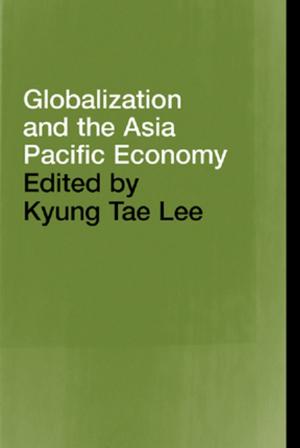Socio-Economic Rights in Emerging Free Markets
Comparative Insights from India and China
Nonfiction, Reference & Language, Law, International, Social & Cultural Studies, Political Science| Author: | ISBN: | 9781317804680 | |
| Publisher: | Taylor and Francis | Publication: | September 25, 2015 |
| Imprint: | Routledge | Language: | English |
| Author: | |
| ISBN: | 9781317804680 |
| Publisher: | Taylor and Francis |
| Publication: | September 25, 2015 |
| Imprint: | Routledge |
| Language: | English |
In the last decade or so, China and India have emerged on the global stage as two powerful free market economies. The tremendous economic growth in China and India has meant that they have been able to lift millions of people out of the poverty trap. This growth has not, however, been without problems. Apart from worrying levels of environmental pollution, a significant number of people are still struggling to live a decent life as they do not have adequate access to basic needs such as food, health services, education, water, and housing. The traditional old age support mechanism is collapsing amidst push for urbanisation and the practice of nuclear families, while the alternative social security system has not been put in place. Both China and India stress the importance of socio-economic rights, have ratified the International Covenant on Economic, Social and Cultural Rights and have in place a strong legal framework for the realisation of such rights. The constitutions of China and India accord significant importance to socio-economic rights and the both countries have numerous laws, regulations and policies that seek to implement various socio-economic rights.
This book investigates how the gradual adoption of free market ideology has impacted on the realisation of socio-economic rights in both India and China and how the constitutional and legal frameworks have made necessary adjustments. Chapters in this volume, which are written by academics of international standing, explore how these two countries have tried to overcome certain common governance challenges in realising socio-economic rights. The role played by courts in India and China in the protection and realisation of socio-economic rights is considered along with the use and limitations of public interest litigation in achieving these rights. Finally, the effectiveness of measures in realising socio-economic rights are evaluated in relation to specific rights such as the rights to food, health, education, social security, and gender equality.
In the last decade or so, China and India have emerged on the global stage as two powerful free market economies. The tremendous economic growth in China and India has meant that they have been able to lift millions of people out of the poverty trap. This growth has not, however, been without problems. Apart from worrying levels of environmental pollution, a significant number of people are still struggling to live a decent life as they do not have adequate access to basic needs such as food, health services, education, water, and housing. The traditional old age support mechanism is collapsing amidst push for urbanisation and the practice of nuclear families, while the alternative social security system has not been put in place. Both China and India stress the importance of socio-economic rights, have ratified the International Covenant on Economic, Social and Cultural Rights and have in place a strong legal framework for the realisation of such rights. The constitutions of China and India accord significant importance to socio-economic rights and the both countries have numerous laws, regulations and policies that seek to implement various socio-economic rights.
This book investigates how the gradual adoption of free market ideology has impacted on the realisation of socio-economic rights in both India and China and how the constitutional and legal frameworks have made necessary adjustments. Chapters in this volume, which are written by academics of international standing, explore how these two countries have tried to overcome certain common governance challenges in realising socio-economic rights. The role played by courts in India and China in the protection and realisation of socio-economic rights is considered along with the use and limitations of public interest litigation in achieving these rights. Finally, the effectiveness of measures in realising socio-economic rights are evaluated in relation to specific rights such as the rights to food, health, education, social security, and gender equality.















